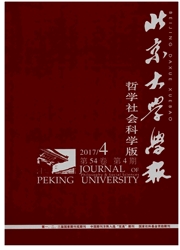

 中文摘要:
中文摘要:
技术的不断创新是一个国家经济持续增长的基础。工业革命以前,中国由于人口众多,在以经验为基础的技术发明方式方面占有优势,这是其经济长期领先于西方的主要原因。之后,由于科举制度的阻碍而未能及时实现向以科学与实验为基础的发明方式的转变,中国和西方的技术、经济差距迅速扩大。为赶超发达国家,新中国选择了违反当时要素禀赋结构所决定的比较优势的发展战略,试图在资本极端稀缺的条件下优先发展资本密集型重工业,导致优先发展部门中的企业在开放竞争的市场中缺乏自生能力,并以价格扭曲、资源计划配置等来保护补贴这些企业,资源配置效率低下。自改革开放以来,中国经济取得了奇迹般的快速增长,然而双轨制的渐进改革使得原有计划体制和市场体制之间出现某些制度的不配套,导致经济的周期波动、金融体系的脆弱以及收入分配的恶化等诸多问题。只有完成传统赶超部门内缺乏自生能力企业的改革,消除计划体制中各种制度扭曲存在的原因,中国才能全面完成向市场经济的过渡,并充分利用后发优势使经济在未来较长时期内实现又好又快的发展。
 英文摘要:
英文摘要:
The continuous innovation is the key for a sustained economic growth for a country. Before the industrial revolution, due to her large population, China had advantages in experienced-based technological innovations, which is the main reason that China was more developed than western countries in the pre-modem times. Thereafter, because of the impediment of civil-service examination system, China failed to realize the transformation towards the science-cum-experiment-based technological innovations, so its technology and economy was quickly lagged behind western countries. After the founding of PRC, in order to overtake the developed countries and develop advanced capital-intensive industries first, China chose to adopt a development strategy that was inconsistent with its comparative advantages determined by its endowment structure at that time. As a result, the enterprises in these industries lacked viability in a free open market, and the government adopted the planned system to develop the non-viable enterprises. The efficiency of resource allocation was low. Since the beginning of reform and opendoor policy, China has achieved miraculous economic growth. However, its dual-track gradual reform approach has led to incompatibility between traditional planned economic system and market economic system, which has resulted in many problems such as cyclic economic fluctuations, the fragile financial system and deteriorating income disparities. Only through completing the reform of nonviable enterprises in traditional industries that were comparative-advantage-defying and eliminating the roots of all kinds of institutional distortions in planned economic system, would China be able to accomplish its transition to market economy, to fully make use of its advantages of backwardness, and to maintain its economic growth both healthy and fast in the long future.
 同期刊论文项目
同期刊论文项目
 同项目期刊论文
同项目期刊论文
 期刊信息
期刊信息
